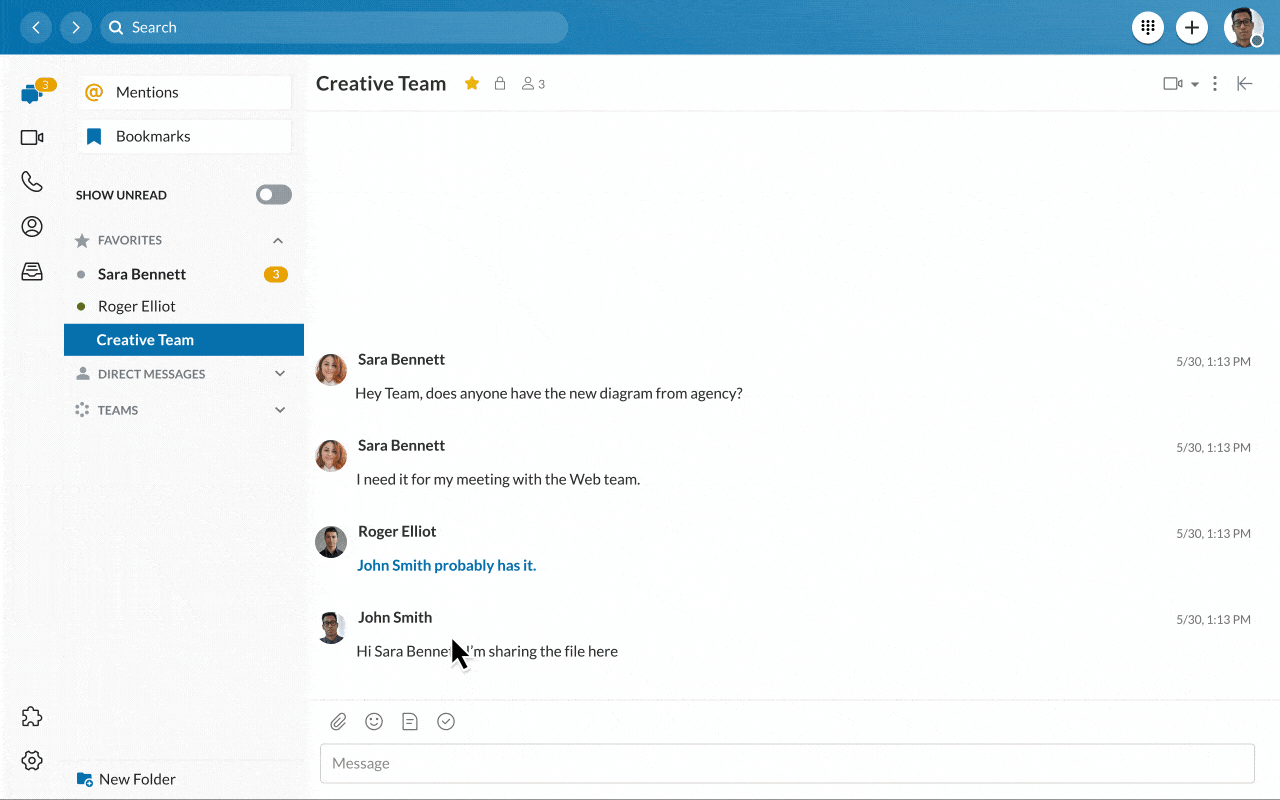Spoiler alert: starting a startup isn’t easy. It takes money, time, and work to get your idea off the ground–not to mention that you have to create something out of nothing; no one is doing it for you.
Being an entrepreneur is often associated with being a risk-taker daring enough to do what no one else can or will do. Even if entrepreneurs are prepared to risk everything, starting a business is still difficult. In fact, over 21% of startups fail in the first year.
Before you begin the process of forming your business, you must have a clear idea of what your startup will do, understanding its market fit and opportunity, how much it will cost to launch, and when you plan on being profitable. Though ideas can be formed quickly, businesses usually take months or years to establish.
If you’re thinking about starting a startup, we’ve got 16 helpful tips to prepare yourself for the task:
- Understand the commitment
- Research the market
- Formalize communication channels ASAP
- Create a business plan
- Perfect your elevator pitch
- Establish a revenue model
- Finance your startup
- Follow the law
- Make the right connections
- Location, location, location
- Build your team
- Leverage consultants and freelancers
- Market your business everywhere
- Create your website
- Launch your startup to the world
- Be patient
🚀 What are the 4 keys to a successful startup? Does your company have them all?
16 tips for starting a startup
1. Understand the commitment
The first thing you need to do is make sure that starting your business is the right decision. Not everyone can handle the work or stress involved in starting and running a business. You will be stretched thin and need to wear many hats on any given day if you want to succeed and grow.
If you’re interested in becoming an entrepreneur, think about your skills and how they would be helpful to the business market. Of course, some skills are more desirable than others, but some skills will never become obsolete.
If you already have a business plan for the company you’re interested in starting, think about your plan’s strengths and weaknesses. Make sure none of the problems with your business strategy will be impossible for you to overcome.
Some of the biggest challenges when starting your business may be:
- Sufficient cash flow
- Recruiting and hiring employees that are a good fit
- Being discouraged by rejection
- Long working hours
- Maintaining a work/life balance
- Managing your time
- Knowing when to pivot or adjust your plan
- Learning to let employees go without any legal liability
After you’ve made sure that you can handle the stress of starting your own business, think about what resources you already have that you could use to promote your business.
Stay informed with RingCentral
2. Research the market
Before starting a business, you must know your industry and have a good idea of what customers want. This way, you can focus on making products or services that people will be interested in buying. If there are no customers for your product, then the business is bound to fail. It would be best if you also did some research on your competition. If you can find a niche that hasn’t been filled, your business has a better chance of succeeding.
Many experienced entrepreneurs will also tell you that even if there’s no need for your product or service, it’s possible to succeed by creating a demand. Therefore, it’s important to make a product that people want and convince them that they need it.
3. Formalize your communication channels ASAP
Communication is vital for businesses from Day 1, especially in today’s world of remote and hybrid work. You can’t do anything without effective communication. Establishing easy ways to communicate with your partners, employees, or investors means you’ll have balance in your work life and personal life. You’ll be able to handle all business-related tasks quickly, no matter where you are.
This becomes even more crucial as your business grows, so your communication solution needs to be scalable. An all-in-one communications solution like RingCentral and its VoIP phone service will allow you to enjoy features such as a business phone service, virtual phone number for business and contact center. RingCentral enables you to integrate all of your communications like voice calling, direct messaging, and one-click video conferencing:
You can even share files that your team can annotate on the go:
4. Create a business plan
Once you have an idea for a startup, it’s important to write it down in the form of a business plan. If you don’t already know how to create one, there are plenty of online resources that can help. The point of writing out your ideas is to get a better roadmap of what’s involved with starting and running a business. Having a plan makes it easier to tell your story to potential investors. As the chief storyteller for your business you will need a battle tested business plan from the start.
Your business plan may also help you get funding for your business, steer your business as it grows, and stay on track to reach important milestones along the way.

5. Perfect your elevator pitch
If you can’t effectively describe your business or product in two simple sentences or less, then you don’t have a good handle on what you do. You need to explain your business to potential investors, customers, and employees. If you can’t do that quickly, there’s no way to expect anyone else to understand or promote your business. Don’t overthink this part, be clear, concise and compelling.
Here are some quick tips for writing an effective elevator pitch:
- Keep the pitch positive and simple.
- Be brief and to the point.
- Own your company’s vision and mission.
- Make it clear what sets you apart from the competition.
- Encourage open-ended, follow-up questions.
Once you have a strong elevator pitch, practice it repeatedly until you’re comfortable delivering it at any moment. The more you practice, the easier it will be to explain what you do. You should also be certain that your elevator pitch aligns with your business plan.
In addition to your elevator pitch, you should have a pitch deck. The pitch deck is a document that has ~15-20 slides. It should be engaging and visually appealing. Every pitch deck should include:
- A cover slide with your company name and logo
- An executive summary and timeline
- Problem/solution statements
- Your current status
- Customer acquisition strategy
- Financial projections and growth plans
- Risk mitigation plan
- Success metrics
Your pitch deck is a living document that evolves with your business. Keep it up-to-date at all times, so you’re ready at a moment’s notice to present it to potential investors.
6. Establish a revenue model
When you plan on launching your business, you must have an idea of how you’re going to turn a profit and when. Having a good idea of how much money will come in and when it’s coming is critical in the planning process.
While some products may sell themselves, you still have to have a plan. Figure out how you’re going to monetize the product, how much money you’ll need to get by until you start making money, and when you think you’re going to start seeing revenue.
It’s also important to set goals for your business, like how much money you want to be making in one year, two, five years, etc. Again, this is important for measuring growth and expanding your company.
7. Finance your startup
There are many costs associated with starting a business, including supplies for the product or service you’re offering. You’ll also need office space, equipment, and employees, which can quickly get expensive. There are several ways to finance your startup, including:
- Savings
- Credit cards
- Family and friends
- Angel investors
- Crowdfunding (an online site that allows people to donate money for your business in exchange for rewards like products or services)
Some entrepreneurs launch businesses with their funds; others apply for loans or use credit cards.
If you’re planning on using credit cards to finance your startup, make sure that you’re financially able to pay it back. You don’t want debt holding back your company or causing it to fail. Also, be aware of the interest rates on your credit cards and how they’ll affect your repayment plans.
Another viable option is to seek private investments from venture capitalists, angel investors, and investment funds. You can even look for individual investors through platforms like Kickstarter. Most platforms will provide you with helpful advice on cultivating an investor’s interest in your business.
Getting funded through a seed round can be intimidating, and it involves a lot of work, but if you’re successful, these people will be there to support, encourage, and guide your business. Investors are experienced entrepreneurs themselves, so they have a lot to offer. Plus, since they’re investing in your company, they are interested in seeing it succeed.

8. Follow the law
When you first establish a new business, it’s important to have legal documentation in place. That means you need to fill out and file the following paperwork according to the laws in your state of incorporation:
- Business name registration
- Statement of Information (SOI) form
- Articles of Incorporation or Organization (if your state requires it)
- Business license
- Federal tax identification number or employer identification number (EIN)
- Trademarks
- Bank accounts
- Client contracts
- Leases
- Employee contracts
You’ll also need to make sure that you register for any licenses or permits required by the state in which your business is based. These are usually available online or at the local government office.
9. Make the right connections
Starting a business is risky. It’s important to surround yourself with several types of people who will be on your side if you need them. That includes:
- Attorneys
- Certified public accountants
- Bankers
- Insurance agents
- Investors
- Startup advisors
- Startup communities
These people can offer advice and support in important areas of your business, including:
- Legal issues
- Finance and accounting
- Product development
- Financing and funding
- Marketing and sales
- Customer service
- Manufacturing or production
Don’t be afraid to ask for help. These people have the experience and knowledge you need to make your business a success, so don’t be shy about asking for guidance.
Bonus tip: Choose the right software connections, too
The last thing you need as you build your business are tech hiccups and an unresponsive software contact. As you shop for productivity and communications software, be sure to ask about 24/7 support and other services available for founders like you. RingCentral, for example, has special on-ramp programs for startups to help you take full advantage of our platform of features like CCaaS and virtual call center.
10. Location, location, location
Before you start a business, one of the most important things is to decide where it will be located; it’s not enough to pick a place and hope for the best. Having the right location can determine whether or not your business fails or succeeds. For example, if you’re opening a restaurant, it’s important to be in a place with a lot of foot traffic or easy access from major roads. You should also research the area’s demographics and make sure that there is enough of your target market to support the business.
Here are some examples of places you could think about setting up your business:
- A vacant office space
- Home
- Shopping mall
- Parking lot
- Commercial building
- Open-air market
It’s also important to consider the importance of an online presence and remote work for your employees. You don’t have to choose a location just yet if you plan to run your business out of your house to save money.
11. Build your team
Before you release your product, it’s also a good idea to have a team in place. You’ll need employees to be able to launch the business.
The right people for your team will depend on your product or service, but you should consider hiring:
- Accountants
- Engineers
- Web designers
- IT professionals
- Developers
- Finance specialists
- Marketers and salespeople
- Administrative assistants
Pay attention to culture and fit when hiring. You want people who are passionate about your product, but you also want them to work together as a cohesive unit.
In the beginning, this team will be small, and your employees will have to wear many hats, but it’s important to keep your startup agile so you can shift as the market dictates.
Bonus tip: Hiring via the cloud = a global talent pool
Thanks to cloud based phone systems, startups are no longer bound by the small radius around their brick-and-mortar offices. The world is your talent pool today; you can recruit, interview, and onboard new team members 100% remotely.

12. Leverage consultants and freelancers
In addition to building a strong core team, it’s important to remember that not everyone has to be an employee. For example, you can work with consultants and freelancers to complete some tasks without committing to a long-term relationship.
Here are some roles you might want to outsource:
- Software development
- Graphic design and marketing services
- Accounting and finance
- Legal advice and support
- Fellow entrepreneurs and mentors
- Website development and hosting
If you decide to use consultants and freelancers, make sure that they sign nondisclosure and confidentiality agreements. Remember, only you should know your business plan and new product ideas while they’re still in development.
13. Market your business everywhere
Even with the right team and location, you’ll need to market your business every day. Of course, that includes promoting it in all of its current iterations (website, social media, etc.). Still, it’s important to constantly develop new marketing strategies to keep your brand in the public eye.
Here are some marketing strategies you should consider:
- Website and blogging
- Social media
- Marketing through email and direct mail
- Word of mouth
Blogging can be a great way to share your product and generate interest in the market. This is also a good opportunity for you to get feedback from potential customers and early adopters.
Once you develop a product, you should create a lead magnet and entice people to sign up for your mailing list to generate interest in the market.
You should also invest in paid advertising for your business, whether buying ads on Facebook, Google, or other social media platforms or buying a sponsored post on a blog with a large following.
14. Create a website and drive traffic to it
The last thing you need to do before selling or releasing your product is to create a website or online store. There are two ways to do this.
The first way is to use a blogging platform like WordPress and create your site using the built-in blogging functionality. This works well for information-based companies, but you have to pay for a web host to have your unique domain name. You can use a domain name generator to create a unique name for your startup
You can also use an e-commerce platform like Shopify to create an online store to sell your product. This will cost a few dollars per month, but it’s worth the investment if your business has a physical product.
In both cases, you still need to drive traffic to your site to generate sales. Here are some ways to do that:
- Content marketing
- Social media marketing
- Email marketing and automation
- SEO (search engine optimization)
Try to combine as many of these strategies as you can. This way, you’ll increase your reach and generate more traffic without spending a fortune.
If you need to spend money on advertising, Facebook ads are usually very effective for startups because it only takes a few dollars to get started.
Of course, you’ll need to know your target market before you start advertising. For example, you don’t want to spend all of your money on Facebook ads if your target market is really on Pinterest.
15. Launch your startup to the world
Once you have a team, location, and product, you’re ready to launch your startup. Your product launch could take one day, or it might take several weeks. Your strategy for launch will depend on what type of product you’re offering. For example, some companies choose to do a soft launch for friends and family before their hard launch, while others may choose to roll their product out in stages over several days, weeks, or months.
If your business offers a physical product, then you’ll want to build up as much hype as possible before the launch date. That means sending out small batches of your product to blogs, influencers in your market, and reviewers for potential endorsements.
If you’re selling information or online service, then you’ll want to roll out your product one customer at a time. This way, if something goes wrong, you have plenty of time to fix it before it becomes a widespread issue.
When you launch your product to the world, make sure that you use any avenue you can. This includes your blog, social media accounts, and even paid ads.
16. Be patient
Starting a business is not an easy task. Running a business is not easy either. Many entrepreneurs work tirelessly for years or decades before finally seeing their startups succeed or fail. It’s not impossible, but it all depends on the effort you put into your business and how much time you’re willing to dedicate to it.
The first year of any business is usually the hardest, so it’s important not to lose hope during that time. Just be sure to have a plan in place for dealing with hiccups along the way. You should also seek advice from other entrepreneurs or mentors if you feel like your startup is struggling and you’re running out of resources.
We ♥️ startups
We already love your next big idea. Check out RingCentral for Startups to see how we can help give your new business the professional polish and dynamic communications it needs to succeed.
Updated Mar 13, 2025













